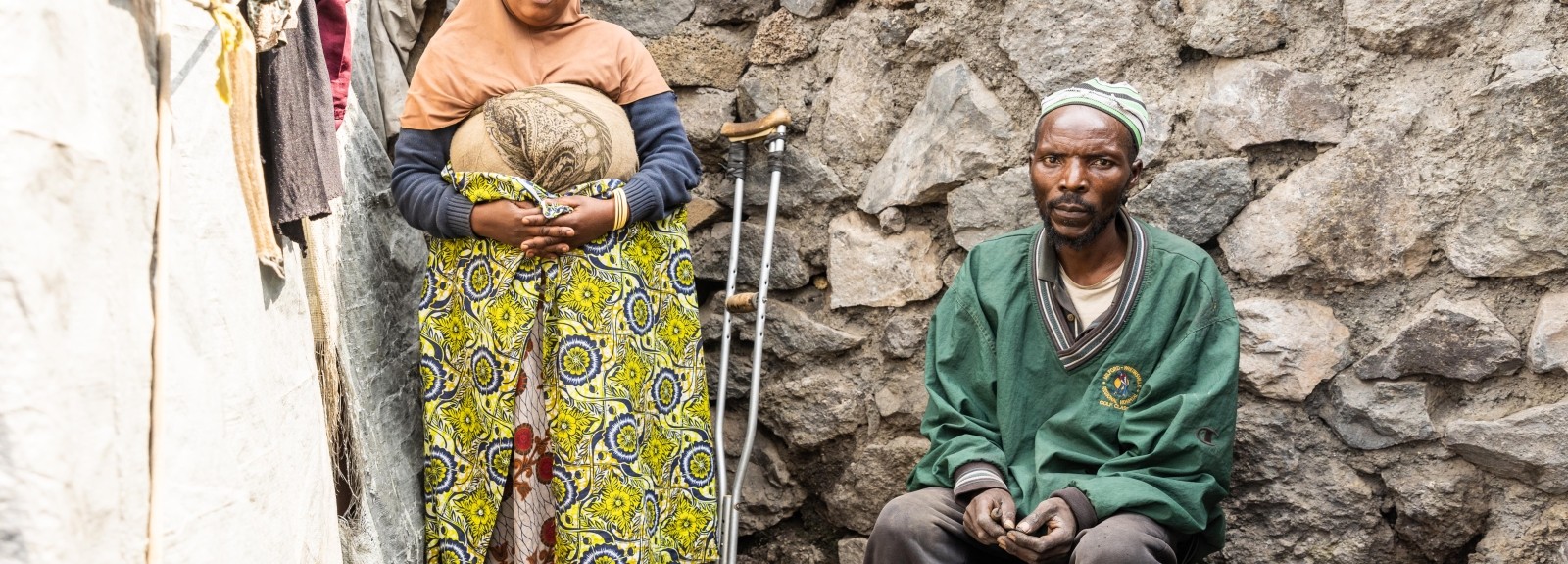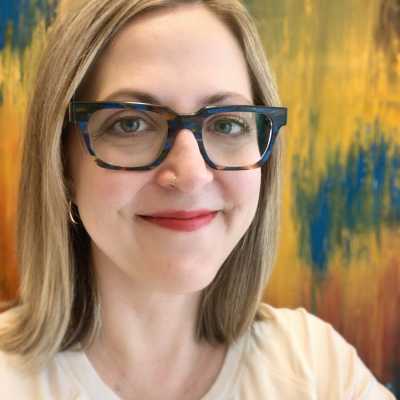There are countless statistics around migration. Like how there are 281 million people in the world who have left the country they were born in because of things like war and conflict, lack of economic opportunities, human rights and disasters. Or that 41 million of these people are under the age of 20. That 3.6% of the global population are migrants...the numbers go on and on.
On this International Migrant Day, you will come across statistics like the ones above, but behind these numbers stands a much bigger, truer fact.
They are our neighbors.
Our neighbors who have fled their homes have experienced unspeakable hardships. They are often forced to swaddle their broken hearts and lives with resilience and determination that is mindboggling. Their needs and dreams often mirror our own — to provide for their families, to see their children grow up, to move past survival to thriving.
Here are four such neighbors who, because of your love, are no longer facing their struggles alone.
Adam in Lebanon
It was back- to- school week for young Adam when violence escalated in his hometown in Lebanon. Instead, he was forced to flee.
"I am afraid.” That’s what 10-year-old Adam says when his family arrived at a shelter made possible through your love outside Beirut, Lebanon, on September 25.
As bombs fell on their hometown in Bint Jbeil, Adam’s family packed everything they could grab quickly. In a matter of minutes, they were in the car, driving as fast and far as possible to escape the danger. After a12-hour drive to Beirut, Adam and his sister waited in the car for several more hours while their parents searched for a safe place to sleep, finally finding shelter where our Lebanon Country Director Ali Hijazi and team were assessing needs.
Hijazi describes the situation as "the most dire crisis in Lebanon’s modern history." This is not only due to the immediate casualties and destruction but also because of the enduring impact this violence will have on the region.
In the immediate aftermath of the attacks, your compassion greeted neighbors like Adam with emergency food parcels and LWR Quilts and Kits. And months on, you are still comforting our neighbors with essential needs like hygiene kits, warm meals and fuel. It’s installing showers and providing water purifiers to shelters housing our displaced neighbors. It’s showing up as critical trauma counseling for both children and adults.
Because of you, neighbors in Adam know they do not face it alone.
Nyalual in South Sudan
Nyalual fled violence with her children, only to face illness and hunger.
Like many women in her community of Ayod, South Sudan, Nyalual Mathieng became a widow during the civil war, which claimed nearly 400,000 lives and displaced another 4.5 million.
In a culture where widows are often shunned, Nyalual worried about surviving as a single mother and sole provider, even as she mourned. Then flood waters came, and she had found herself fleeing with her children for safety in a canoe.
After a week in the canoe and days on foot, they reached Ayod. They survived by foraging and selling firewood. When her youngest child became very ill, a health clinic officer recognized malnutrition and referred her to a nutritionist. The nutritionist told her about a Lutheran World Relief program for displaced people and widows.
Your compassion provided necessities like jerrycans and utensils as well as seeds for her garden, sprouting both sustenance and hope. She no longer buys vegetables or sorghum at the market and even sells her surplus for income. She’s trained in the nutritional importance of a varied diet and practices farming at a demo plot. It’s connected her with other widows, who help each other with childcare and support in uncertain times.
“I am planning for a better life for my children,” Nyalual says. Her children are now in school, and she hopes to expand her farm to ensure her children can follow any dream they have.
For the first time, she’s able to make them come true.
Hary in Peru
Hary was forced to leave everything behind, but your compassion empowered her for a successful future.
After being hit by a bus in 2013, Hary Silva faced an impossible decision. Forego proper health care due to skyrocketing inflation in her home country Venezuela or leave the only place she’d ever known. After five years of fruitless recovery, she finally decided she had to leave.
“I think that for all of the Venezuelans who emigrated, it's traumatic to leave all our lives behind,” she says. “That whole journey (to Peru) I just wanted to come back.”
Arriving in Peru with nothing but still determined to build a life, she discovered Lutheran World Relief partner Encuentros, which gives refugee-entrepreneurs seed capital and training in digital marketing and skills to develop small businesses.
Because of your support, Hary has successfully launched a women’s clothing and accessories business called Saudihar Creaciones out of her home. She sells a variety of women’s garments including macrame clothing and sandals, bathing suits, hats, scarves, earrings, headbands and more.
Hary also uses VenInformado, a digital platform that provides access to resources such as job trainings and free guidance. Topics range from legal requirements for refugees and residency status and managing mental health to resources for survivors of violence and guidance for starting a small business. It provided much-needed answers when Hary found herself with none.
With a thriving business, Hary is grateful for those who helped get her here.
“Thanks to the support they have provided, that they have provided me with personally. I was able to make my dream come true.”
Idi in the Democratic Republic of Congo
Your compassion ensured that Idi and his family have access to clean water at their displacement camp in the DRC.
Escalating violence between armed militias in the DRC is forcing millions of innocent families to flee their homes in search of peace and safety. Many end up in displacement camps, which are vastly ill-equipped to support the needs of people who arrive with nothing but trauma and the clothes on their backs.
When his village became the frontlines of war, Idi and his wife Mariam grabbed their eight children and hid in the bushes outside of town. By morning they knew it was unsafe to go back. Overnight they lost their home, their peace … everything.
Idi is disabled and has difficulty walking. Mariam has a chronic illness. Yet they had no choice but to rush toward safety. After a painful 17-mile journey on foot, they arrived at a camp for displaced families.
“I am a refugee,” Idi told aid workers, trying to come to terms with his new reality.
But the danger wasn’t over.
The camp was overflowing when Idi’s family arrived, so they set up shelter on the outskirts.
Clean water was scarce. There were no toilets, nowhere to wash your hands. And in crowded settlements with poor sanitation, diseases can spread quickly.
That’s how Idi got sick with cholera. Without treatment, cholera—a waterborne disease-- kills about half of its victims. Fortunately, Idi made it to the health center in time. After three days, he was well enough to return to his family.
Because of your love, Idi no longer worries that his family will face deadly illnesses. At the time there were no latrines, showers or washing stations. Thanks to your generous hearts, the camp is a cleaner and safer place now that this infrastructure has been completed.
Thank you for ensuring that when our neighbors are forced to flee, they are not alone.



